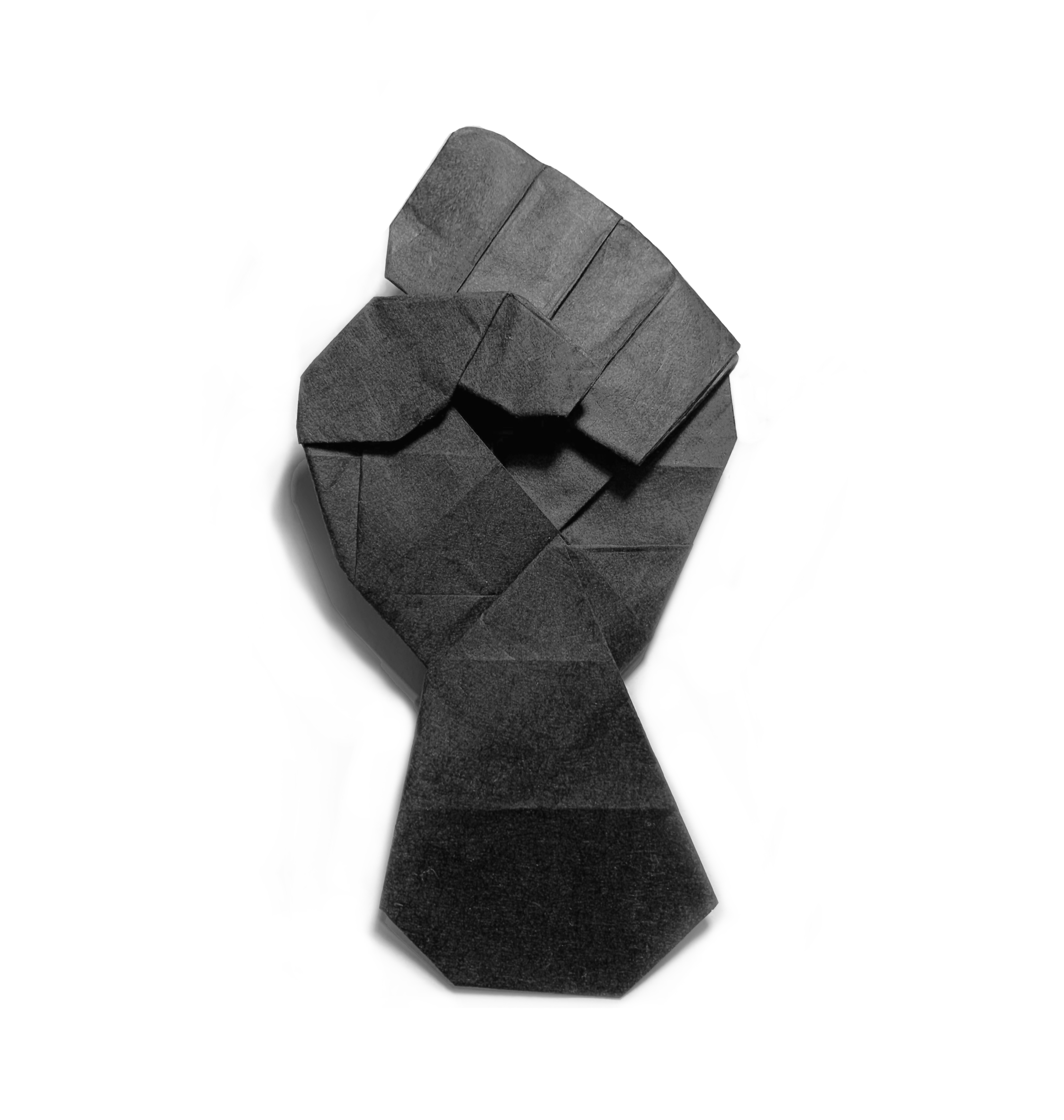The words “origami” and “protest” are rarely used in the same sentence. In recent decades, origami has evolved from simply being a paper craft taught to children in a classroom to help them build their fine motor skills into a sophisticated art form practiced around the world. Although many origami artists still fold paper into birds, bugs and other figural sculptures, a few have created works bearing social and political messages. Most notably, South African/Swiss artist Sipho Mabona creates origami installations critiquing capitalism, global warming and animal cruelty, and Israeli artist Miri Golan’s works call for religious tolerance in the Middle East. However, political origami is still rare. This month, a powerful image of a Black Lives Matter fist folded out of black paper has been circulating on social media, confirming that origami too can be used to create powerful symbols of protest and change.
The model was folded by Beth Johnson, an American origami artist who lives in Ann Arbor, Michigan and has been designing her own origami models since around 2010. Over the last decade, she has developed a style that incorporates rhythmic, elegant – and sometimes whimsical – geometric patterning, such as her 2014 model Spirowl, an owl with two mirrored spirals representing the bird’s eyes (www.bethjohnsonorigami.com). She has gained a following in the global origami community for her models of sheep, jellyfish, squirrels, owls and bears and has been invited to teach her models at origami conventions in Japan, Korea, France, Germany, Spain, Italy, Scotland, Peru and Colombia.
Eager to contribute to the Black Lives Matter movement in the United States, Johnson decided to figure out how to fold a square sheet of paper into the shape of a fist raised in protest. “Mostly, I feel it’s important for me to listen right now and try to learn how I can do better,” admits Johnson. “But I still felt the need to express my support for the Black Lives Matter movement and to add my voice to the growing chorus of people across the country and around the world who are screaming, ‘Enough is enough!’”

Black Lives Matter Fists by various origami folders around the world, using Beth Johnson’s design, June 2020
She explains that the piece came together very quickly, in less than a day. On June 1, she posted it on Facebook and Instagram and the response was immediate and enthusiastic, with origami folders from near and far asking her to share the instructions. She posted them on her website, and in a week was showered with images from folders from around the world – the US, England, Peru, Japan, Brazil, Germany, Korea, the Netherlands, Switzerland, Indonesia and more – posting their versions of her origami fist in solidarity.
“It’s been great to have it so well received,” she shares. “Many people expressed interest in folding it and I immediately started working on some instructions. So now it has given others a way to express their support. And to see the messages – from all corners of the world – fills me with hope.”


